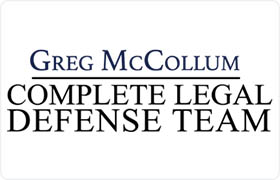Conway Felony Lawyer, South Carolina
Sponsored Law Firm
-
 x
x

Click For More Info:
-
Greg McCollum Complete Legal Defense Team
1012 38th Avenue North Suite 202 Myrtle Beach, SC 29577» view mapCriminal Defence Law Complete Legal Defense Team
Our goal at the Complete Legal Defense Team is to examine the facts and circumstances completely and help our clients.
800-634-0690
Not enough matches for Conway Felony lawyer.
Below are all Conway Criminal lawyers.
William H. Monckton
✓ VERIFIEDWILLIAM H. MONCKTON, VI I graduated from the University of South Carolina School of Law in 1992. After graduation, I served as a judicial law clerk fo... (more)
Jeffrey T. Lucas
✓ VERIFIEDAttorney Lucas grew up in the small town of Great Falls in upstate South Carolina. Following high school, he attended Coastal Carolina University (CCU... (more)
David E. Rigney
✓ VERIFIEDIf you have been injured or are disabled, give me a call. If you need legal advice before you sign a contract, enter into a lease, or sign a business... (more)
Daniel Alan Hunnicutt
FREE CONSULTATION
CONTACTFREE CONSULTATION
CONTACT Greg McCollum Myrtle Beach, SC
Greg McCollum Myrtle Beach, SC AboutGreg McCollum Complete Legal Defense Team
AboutGreg McCollum Complete Legal Defense Team Practice AreasExpertise
Practice AreasExpertise



